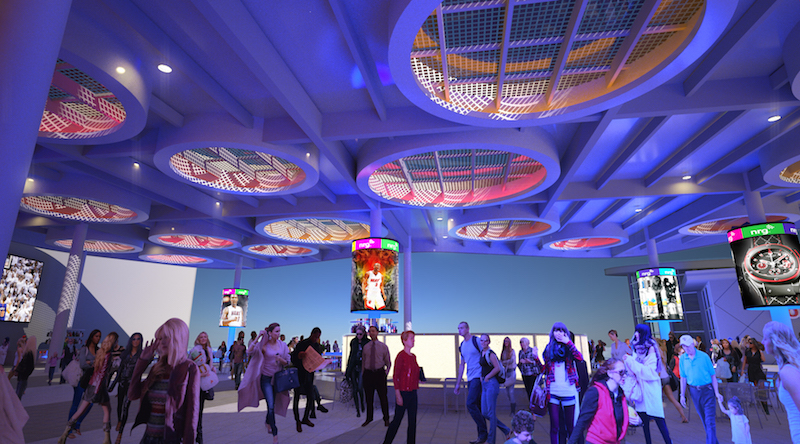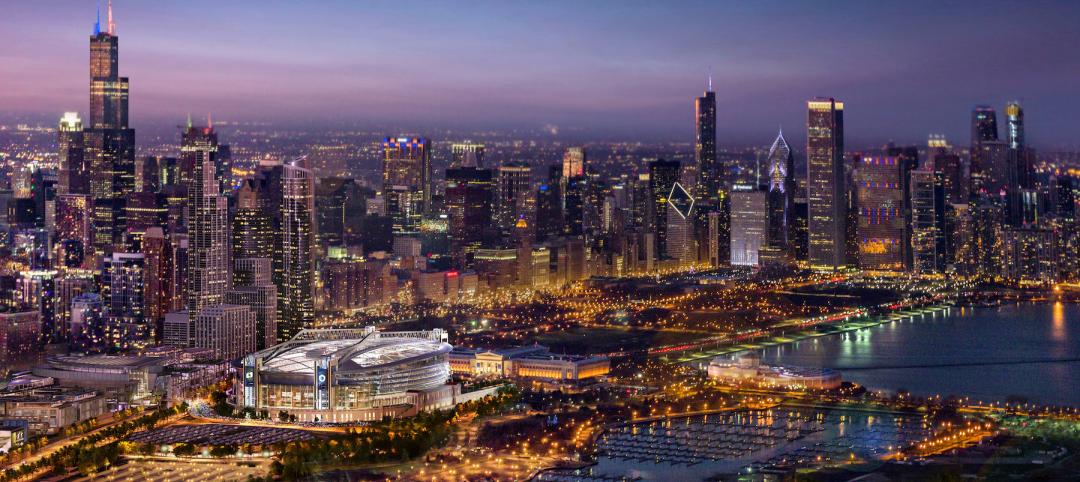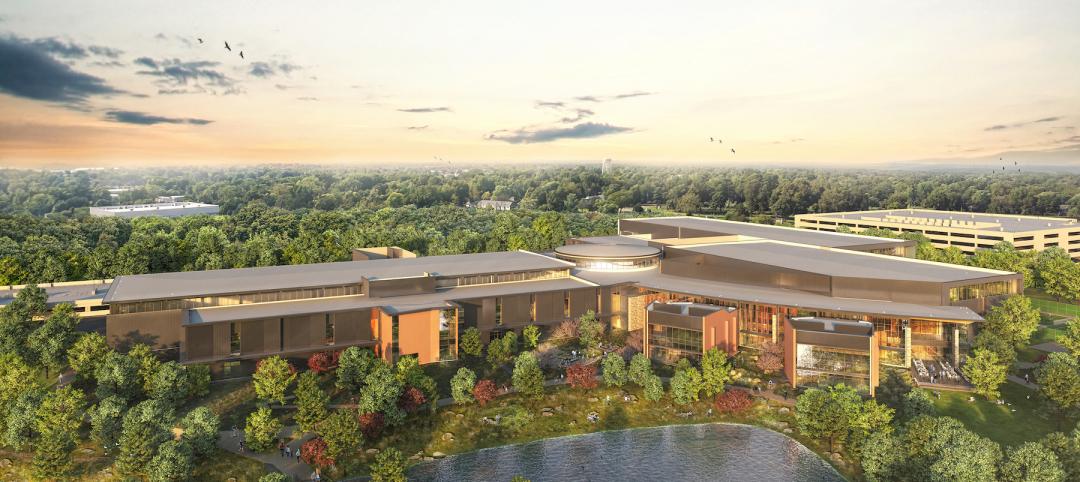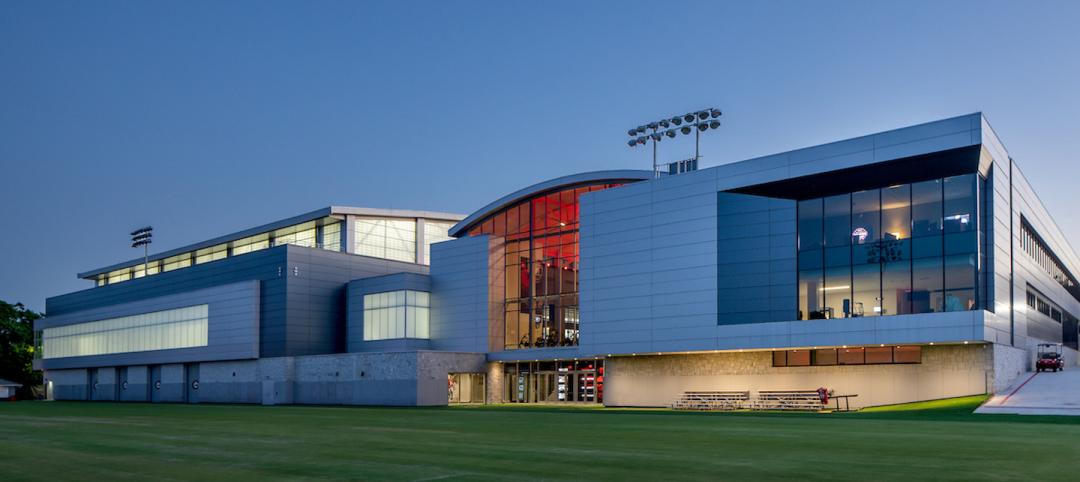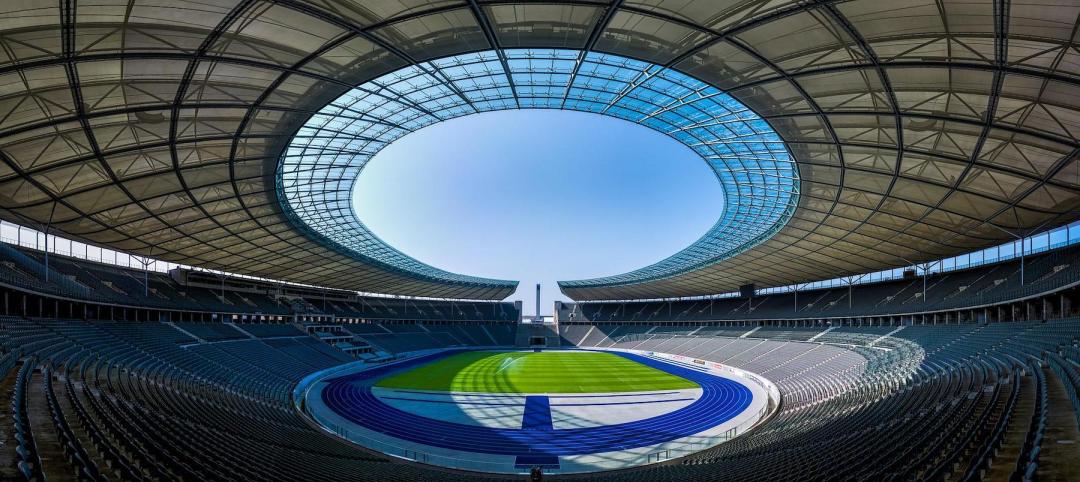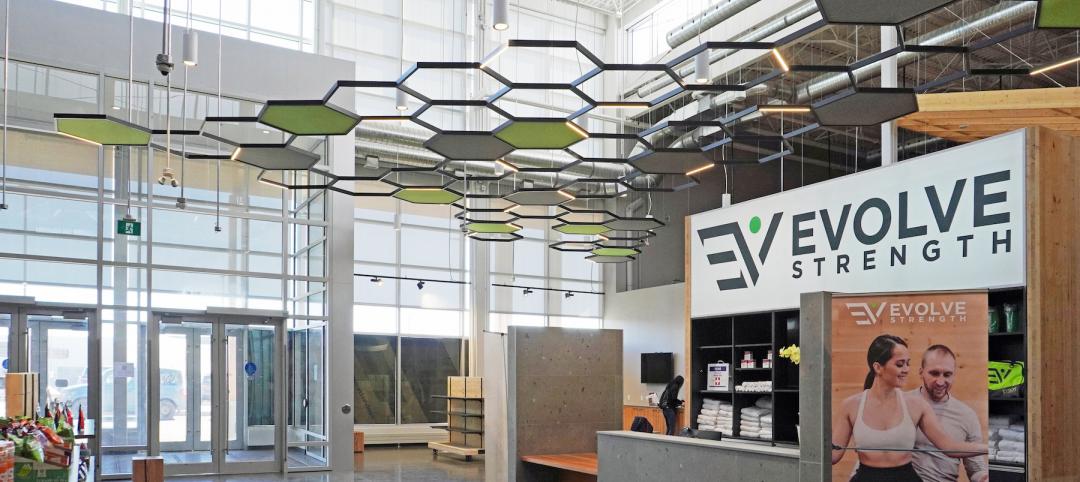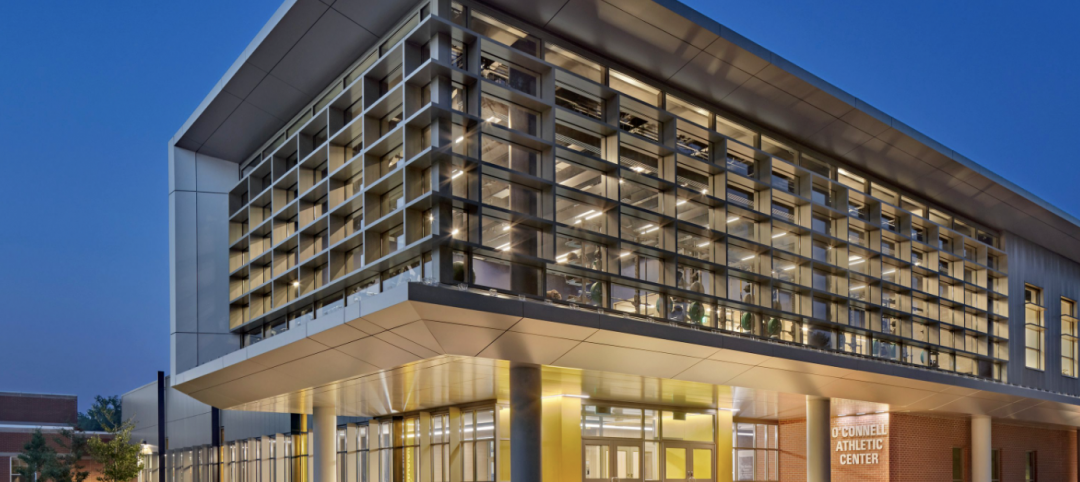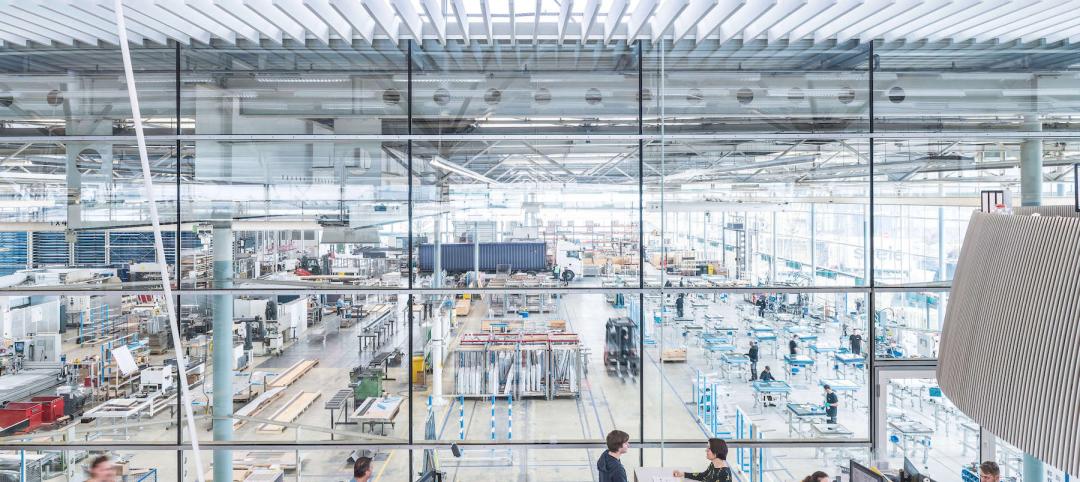On January 19, AmericanAirlines Arena in Miami will relaunch its 23,000-sf East Plaza, which has been retrofitted into a solar pavilion whose canopy includes 14 circular translucent panels that utilize Building Integrated Photovoltaic solar technology.
This transformation is the result of a business partnership between The Miami Heat professional basketball team, which plays at the Arena, and NRG Energy. Last year, AmericanAirlines Arena became the first sports and entertainment facility in the world to be recertified as LEED Gold.
The Heat Group manages this 16-year-old arena, which is county owned and sits on city-owned property. The Heat Group purchased the canopy from NRG, which hired Skanska as the retrofit project’s general contractor. DLR was the architect and structural and MEP engineer.
Jim Spencer, AmericanAirlines Arena’s Vice President of Operations, tells BD+C that the solar pavilion provides a practical answer to the question of how to get more bang out of the open-air East Plaza, which looks onto Biscayne Bay but was being used sparingly because of Miami’s hot, humid, rainy weather conditions.
John Vidalin, The Heat Group’s Chief Revenue Officer, adds that these conditions severely limited the facility’s ability to attract sponsoring partners to that area. (Levy Restaurants is the pavilion’s food and beverage partner, and Barcardi, which is already an arena sponsor, will host a horseshoe-shaped bar in the pavilion’s atrium.)
The canopy offers shade and cover to the East Plaza, and the solar panels, which are 16 to 24 ft in diameter each and take up 5,000 sq ft of cover space, will provide an offset to the arena’s energy consumption. Vidalin and Spencer say the pavilion extends the stadium’s footprint and reinforces the building’s certification story. (All of the furniture in the Plaza are made from recycled milk jugs.)
The canopy, says Spencer, is supported by 12 columns, five of which feature 360-degree nanolumen LED displays. The Heat Group has sold the entitlement rights for the Plaza to Xfinity, Comcast’s high-speed Internet and on-demand service, which will deploy full WiFi for the Plaza and has built an 8x12-ft X-1video wall, where visitors can engage with an activation team and a variety of sports and music streaming events.
The pavilion will be open for all of the arena’s sports and concerts. Vidalin says the canopy now makes the Plaza more attractive for conducting other revenue-generating functions like corporate and charity events, group sales, and post-game parties. “It’s really going to be an elegant space,” he says. He adds that the Arena’s ongoing energy efficiency improvement—which included upgrading its building management and HVAC systems to achieve LEED Gold—is a strong selling point for sponsors.
Vidalin had previously worked with NRG when he was with the Houston Texans and San Francisco 49ers football teams. He notes that the East Plaza pavilion allows the energy company, which hadn’t operated in Miami before this, to “plant its flag” in the city, which is a gateway to Caribbean and South American markets.
“We are in the midst of a social movement that demands attention to clean energy,” says David Crane, NRG’s former chief executive. “As the world’s perspective on energy continues to evolve, it will be critically important for business leaders—foreign and domestic—to see and invest in the incredible potential [of] renewable energy, especially built with a design aesthetic in mind.”
Related Stories
Multifamily Housing | Aug 3, 2022
7 tips for designing fitness studios in multifamily housing developments
Cortland’s Karl Smith, aka “Dr Fitness,” offers advice on how to design and operate new and renovated gyms in apartment communities.
Reconstruction & Renovation | Aug 3, 2022
Chicago proposes three options for Soldier Field renovation including domed stadium
The City of Chicago recently announced design concepts for renovations to Soldier Field, the home of the NFL’s Chicago Bears.
Headquarters | Jun 21, 2022
Walmart combines fitness and wellness in associates’ center that’s part of its new Home Office plan
Duda | Paine’s design leads visitors on a “journey.”
Sports and Recreational Facilities | Jun 17, 2022
U. of Georgia football facility expansion provides three floors for high-performance training
A major expansion of the University of Georgia’s football training facility has been completed.
Building Team | Jun 14, 2022
Thinking beyond the stadium: the future of district development
Traditional sports and entertainment venues are fading as teams and entertainment entities strive to move toward more diversified entertainment districts.
Acoustic Panels | Jun 9, 2022
A fitness center renovation in Calgary focuses on tamping the building’s sound and vibration
Bold Interior Design chose as its solution a lighting/acoustical panel combination.
Sports and Recreational Facilities | May 26, 2022
WNBA practice facility will offer training opportunities for female athletes and youth
The Seattle Storm’s Center for Basketball Performance will feature amenities for community youth, including basketball courts, a nutrition center, and strength and conditioning training spaces.
Sports and Recreational Facilities | May 19, 2022
Northern Arizona University opens a new training center for its student athletes
In Flagstaff, Ariz. Northern Arizona University (NAU) has opened its new Student-Athlete High Performance Center.
University Buildings | May 9, 2022
An athletic center accentuates a college’s transformation
Modern design and a student health center distinguish the new addition at The University of Saint Joseph in Connecticut.
Sponsored | BD+C University Course | May 3, 2022
For glass openings, how big is too big?
Advances in glazing materials and glass building systems offer a seemingly unlimited horizon for not only glass performance, but also for the size and extent of these light, transparent forms. Both for enclosures and for indoor environments, novel products and assemblies allow for more glass and less opaque structure—often in places that previously limited their use.


